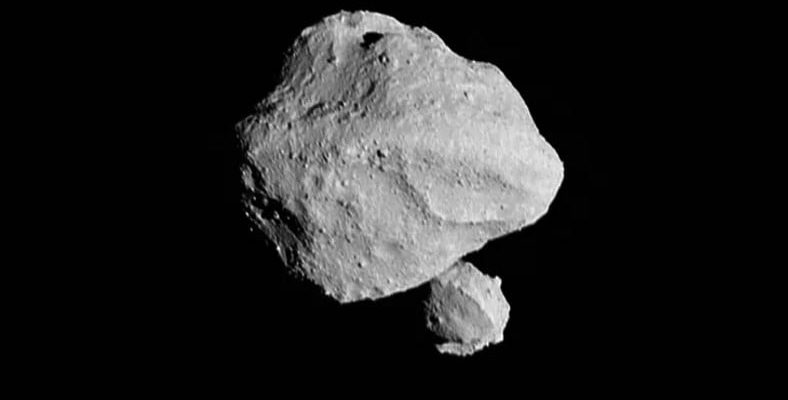The Lucy probe, sent by NASA to examine asteroids in Jupiter in 2021, made an interesting discovery. The rover discovered an asteroid with its own moon.
NASA launched the Lucy spacecraft into space in October 2021 to examine asteroids near Jupiter. He was making remarkable inventions throughout his journey. The space probe made an interesting discovery today.
Researchers say that during a flight by Lucy Dinky (Dinkinesh) He announced that he found an asteroid named after. What makes this object interesting is that it is the first asteroid that Lucy encountered and Having a month of its own.
A tiny satellite orbits Dinky asteroid
In fact, this event is not a very rare thing. This situation, called an asteroid pair, has been encountered in many celestial bodies before. However, scientists say that this situation in Dinky is “unexpected” he stated. Planetary scientist Jessica Sunshine said, “A dual system was certainly a possibility. But it was not expected. This is really awesome!” he said.
NASA states that only about a third of the data about Dinky comes close to Earth, so we still don’t know much. However, existing data and images indicate that the asteroid covered in craters shows that it is. This is most likely a result of the impact of other asteroids. There’s also not much information about the small asteroid next to Dinky. However, researchers say more images will arrive soon and the shape of the satellite strange He says it is. So, we have a high probability of obtaining interesting information from this object.
RELATED NEWS
It is claimed that the Moon May Be Millions of Years Older Than Estimated
Lucy’s research near Jupiter, which is targeted to contact asteroids in 2025, will continue. The vehicle had made interesting discoveries in the past as well. For example, in 2022, he discovered a “mini moon” deep in our solar system, thousands of times smaller than our satellite.
Source :
https://www.engadget.com/nasa-discovered-that-an-asteroid-named-dinky-actually-has-its-own-moon-173028204.html?src=rss
